Article: Do Collagen Masks Actually Work? Science-Backed Benefits & Research [2025 Guide]

Do Collagen Masks Actually Work? Science-Backed Benefits & Research [2025 Guide]
Quick Answer: Modern collagen masks, especially those using hydrolyzed marine collagen and nanofibre technology, show significant effectiveness in improving skin hydration and elasticity. These are also safe to use in your anti-ageing skincare routine and most effective when combined with a healthy lifestyle and other anti-ageing treatments and ingredients.
While traditional collagen molecules are too large to penetrate the skin, advanced formulations like SKINES Super Collagen Melting Film utilise nano-sized particles for enhanced absorption and better results.
The Truth About Collagen Masks in 2025
The allure of collagen masks – and collagen films or sheets – for youthful, radiant skin is undeniable. Celebrities endorse them, beauty bloggers rave about them, and countless brands fill drugstore shelves. But with conflicting information swirling, the question persists: Do collagen masks actually work? Let's delve into the science, separate fact from fiction, and understand what research actually reveals.
The Science Behind Collagen: Understanding Your Skin
Collagen is the fundamental building block of youthful skin, providing structure, firmness, and elasticity. As we age, collagen production naturally decreases 1% each year, contributing to wrinkles and sagging. The ageing symptoms on your skin start surfacing in your mid your 30s or 40s.
This natural decline affects skin in several ways:
- Reduced skin firmness
- Decreased elasticity
- Formation of fine lines and wrinkles
How Exactly Do Collagen Masks Work?
The concept behind collagen masks is simple: apply collagen topically and replenish what's lost, leading to smoother, younger-looking skin.
However, the science isn't straightforward. Traditional collagen molecules are large and struggle to penetrate the skin's barrier. While they may offer temporary hydration, research on their ability to boost collagen production within the skin remains inconclusive.
Collagen masks work by delivering hydration and active ingredients to the skin’s surface. While traditional collagen molecules are too large to penetrate deeply, advanced formulations use hydrolyzed collagen (collagen broken down into smaller peptides for better absorption) and nano-fibre technology to enhance effectiveness.
These innovations allow for improved hydration, elasticity, and a plumper complexion, making modern collagen masks a valuable addition to skincare routines.
New Technology and Advanced Ingredients in Collagen Masks
Fortunately, the collagen mask landscape is evolving. Newer masks utilise innovative technologies like nanofibres to break down collagen into smaller, more absorbable particles. Additionally, incorporating ingredients like hydrolyzed collagen (smaller collagen fragments) and hyaluronic acid or sodium hyaluronate (powerful humectants) may enhance potential benefits.
Scientific Research: Do Collagen Masks Work?
Recent studies offer promise, but conclusive evidence is still emerging. A 2023 study published in the Journal of Cosmetic Dermatology found that hydrolyzed collagen peptides (similar to those used in some advanced masks) applied topically improved skin elasticity and hydration in participants.
Similarly, a 2021 review in the International Journal of Molecular Sciences suggests hydrolyzed collagen might stimulate collagen synthesis in skin cells.
Another 2020 study published in the Journal of Cosmetic Dermatology revealed that marine collagen supplements increased skin hydration by 14%, elasticity by 23%, radiance by 22%, and firmness by 25% after 12 weeks. In the same period, participants experienced a 24% reduction in wrinkles.
However, individual results may vary, and other factors like genetics, sun exposure, and lifestyle play a significant role in skin health. It's crucial to remember that scientific research on topical collagen is ongoing, and long-term studies are needed to solidify its impact on collagen production within the skin.
Traditional vs New-Generation Collagen Masks

While countless collagen masks line the shelves, not all are created equal. Understanding the key differences between traditional and newer formulations can help you navigate this evolving landscape:
Traditional Collagen Masks
- Larger Collagen Molecules: These masks often contain collagen in its natural, larger state, making it difficult to penetrate deeply into the skin.
- Limited Absorption: While they may offer temporary hydration, the collagen molecules struggle to reach the deeper layers where collagen production occurs.
- Hydration Focus: Traditionally, these masks primarily offer surface-level hydration benefits.
New-Generation Collagen Masks
- Nano-Technology: Advanced masks utilise innovative technologies like nanofibres to break down collagen into extremely small particles, facilitating deeper absorption.
- Hydrolyzed Collagen: Many newer masks incorporate hydrolyzed collagen, smaller collagen fragments already pre-digested for enhanced penetration and potential utilisation by the skin.
- Multi-Ingredient Approach: Combining collagen with other active ingredients like hyaluronic acid (a powerful humectant) and antioxidants creates a synergistic effect, potentially amplifying hydration, elasticity, and anti-ageing benefits.
- Research-Driven Development: Newer formulations often draw upon emerging research and focus on ingredients with scientific backing for potential skin benefits.
When to Use Collagen Masks & How Often?
For best results, use collagen masks or films 2-3 times per week. This frequency allows the skin to benefit from hydration and active ingredients without overloading it.
Do Collagen Masks Have Any Side Effects?
Collagen masks are generally safe, but some individuals may experience mild irritation, redness, or breakouts if they have sensitive skin or allergies to specific ingredients. Always perform a patch test before using a new product.
Common FAQs about Collagen Masks
Can collagen masks replace serums or moisturisers?
No, collagen masks provide an extra boost but should be used alongside a complete skincare routine.
Do collagen masks work for all skin types?
Yes! They benefit dry, mature, or dehydrated skin the most but can also help maintain moisture balance in oily skin.
Can I use a collagen mask daily?
It depends on the formulation. Hydrating masks may be used daily, while masks with active ingredients like peptides should be used 2-3 times per week.
Do collagen masks help with acne scars?
While they improve hydration and elasticity, collagen masks alone won’t fade deep scars. However, they can support overall skin health when used with targeted treatments.
Are all collagen masks effective?
The effectiveness varies significantly based on the technology and ingredients used. Advanced formulations with hydrolyzed collagen and nanofibre technology show better results than traditional masks.
Can collagen masks replace other skincare products?
While effective, collagen masks work best as part of a comprehensive skincare routine that includes proper cleansing, moisturising, and sun protection.
Are Collagen Masks Worth It? The Verdict
While the jury is still out on definitively declaring collagen masks as "miracle workers," the latest research and advancements in technology and ingredients paint a promising picture. Masks formulated with hydrolyzed collagen, nanofibres, and hyaluronic acid or sodium hyaluronate hold potential for improved hydration, elasticity, and a more youthful appearance for some individuals.
Remember:
- Individual responses to topical collagen can vary due to a multitude of factors.
- A holistic approach to skincare, encompassing healthy habits and sun protection, remains essential for optimal skin health.
As research continues to shed light on the intricacies of topical collagen and its impact on skin health, one thing remains constant: your journey to radiant skin is unique. Explore different solutions, prioritise evidence-based approaches, and listen to your own skin's response.
Consider innovative solutions like SKINES Super Collagen Melting Film, featuring hydrolyzed marine collagen and nanofibres for deeper absorption. Pair it with the Super Peptide Mist, rich in peptides and other powerful ingredients, for a comprehensive approach to youthful-looking, glowing skin.
*This article aims to provide an objective and informative overview of the current state of collagen masks within the skincare landscape. Please keep in mind that this information does not constitute medical advice.

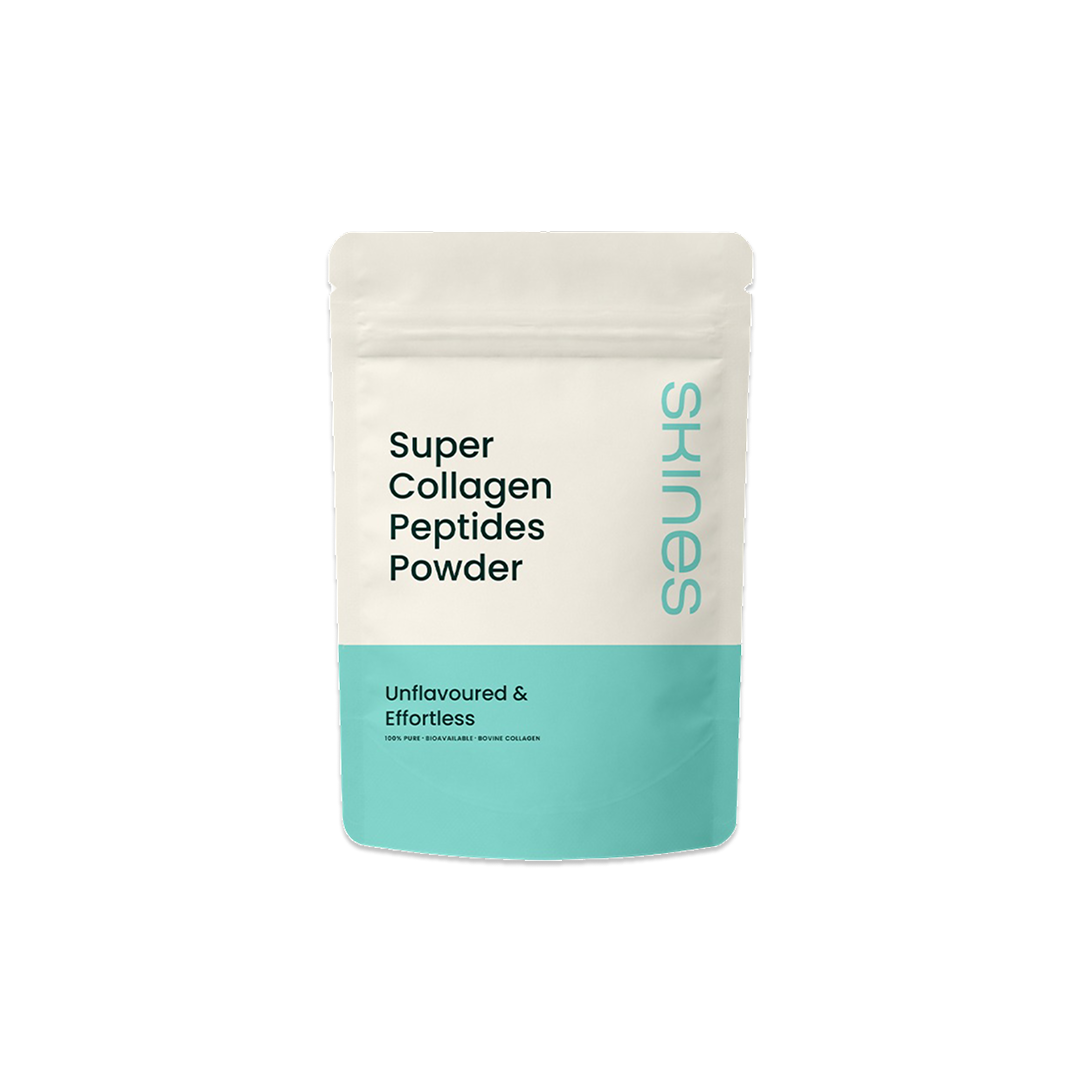
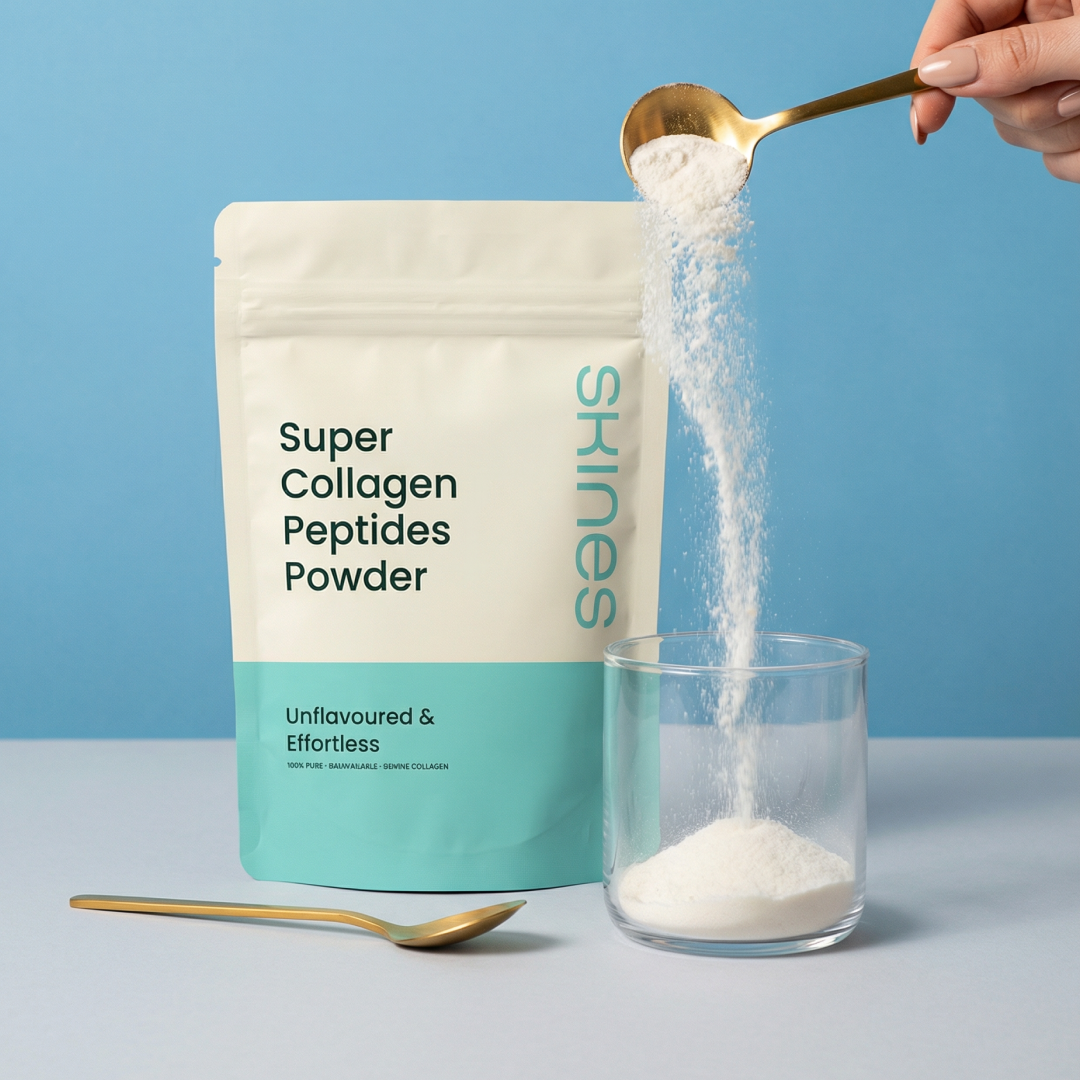

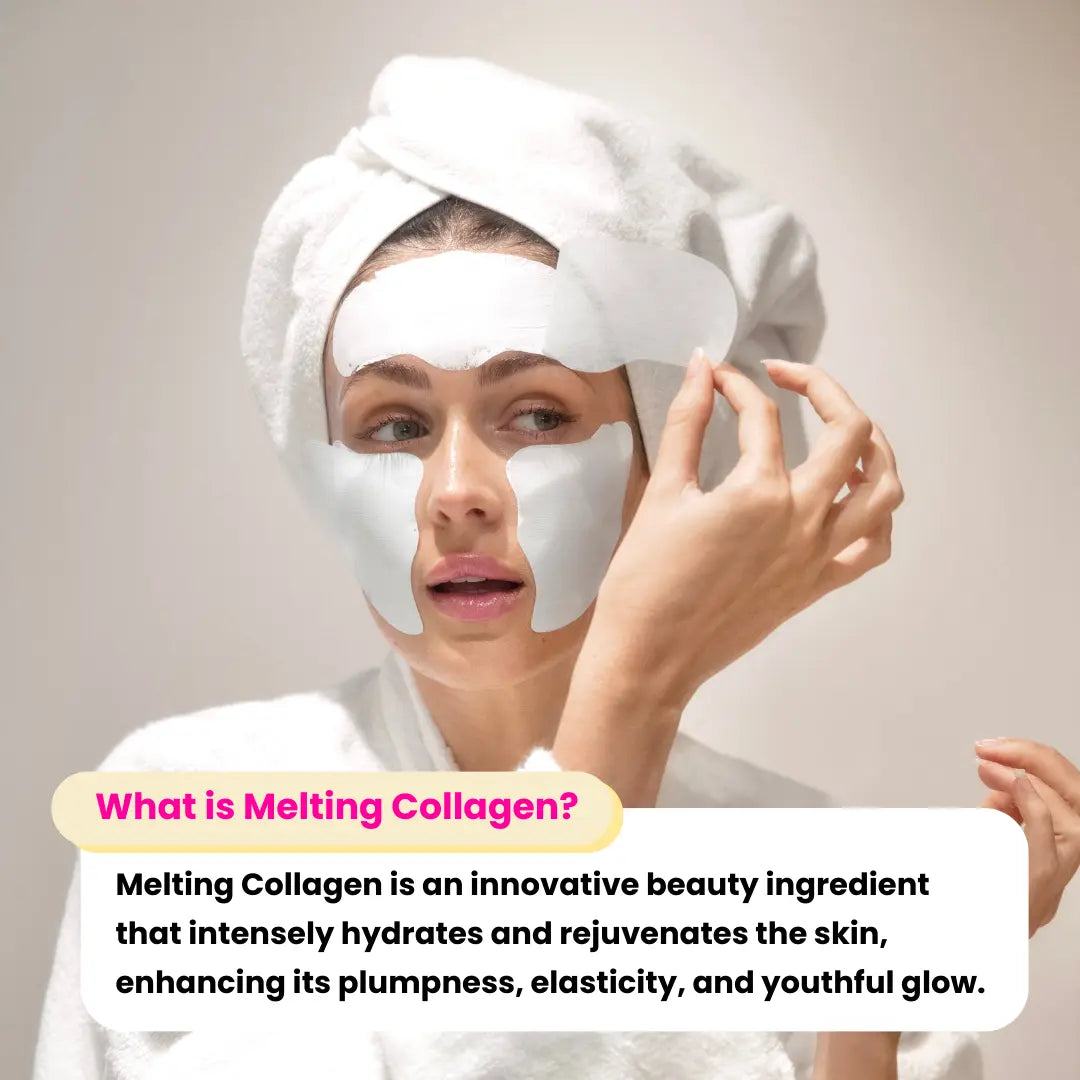
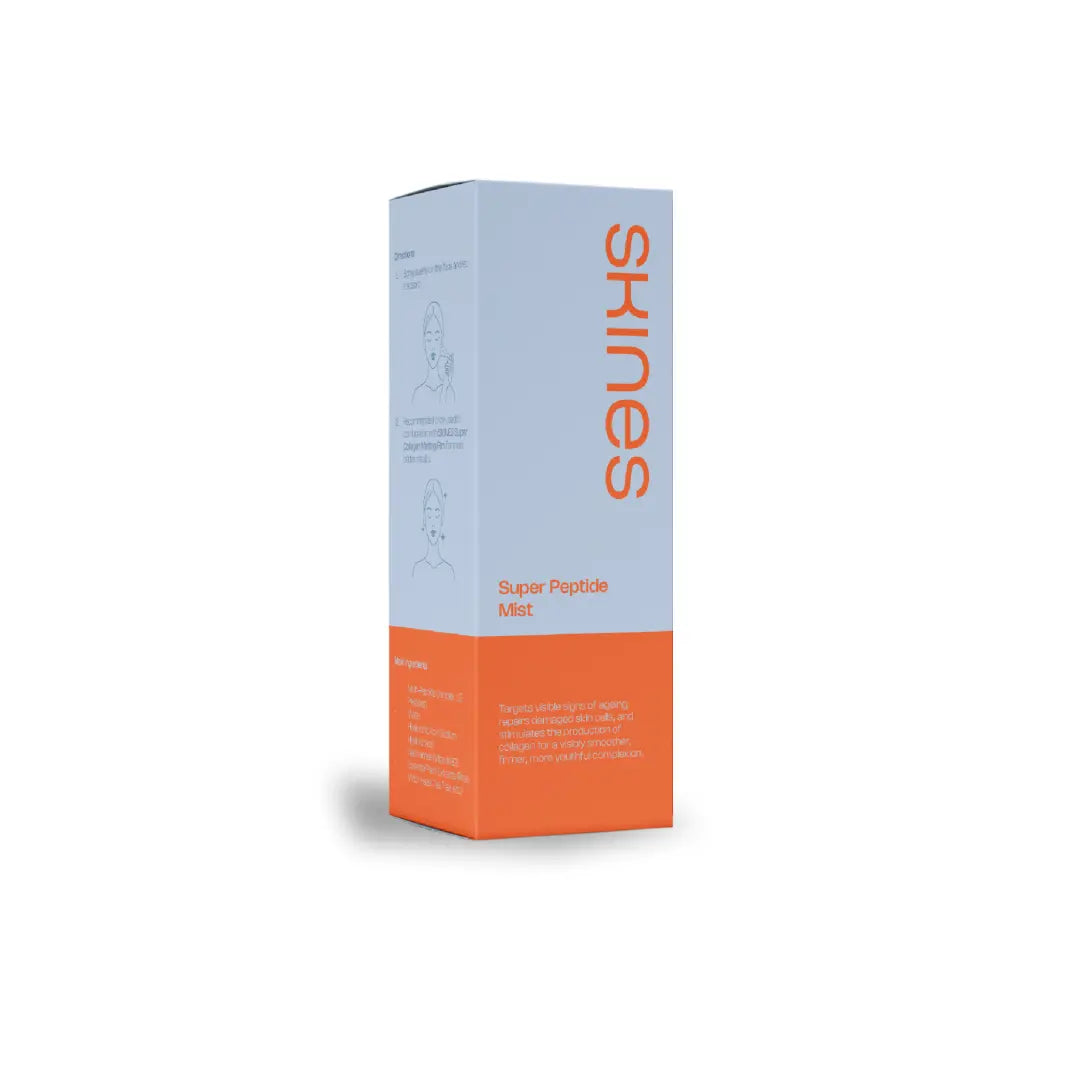

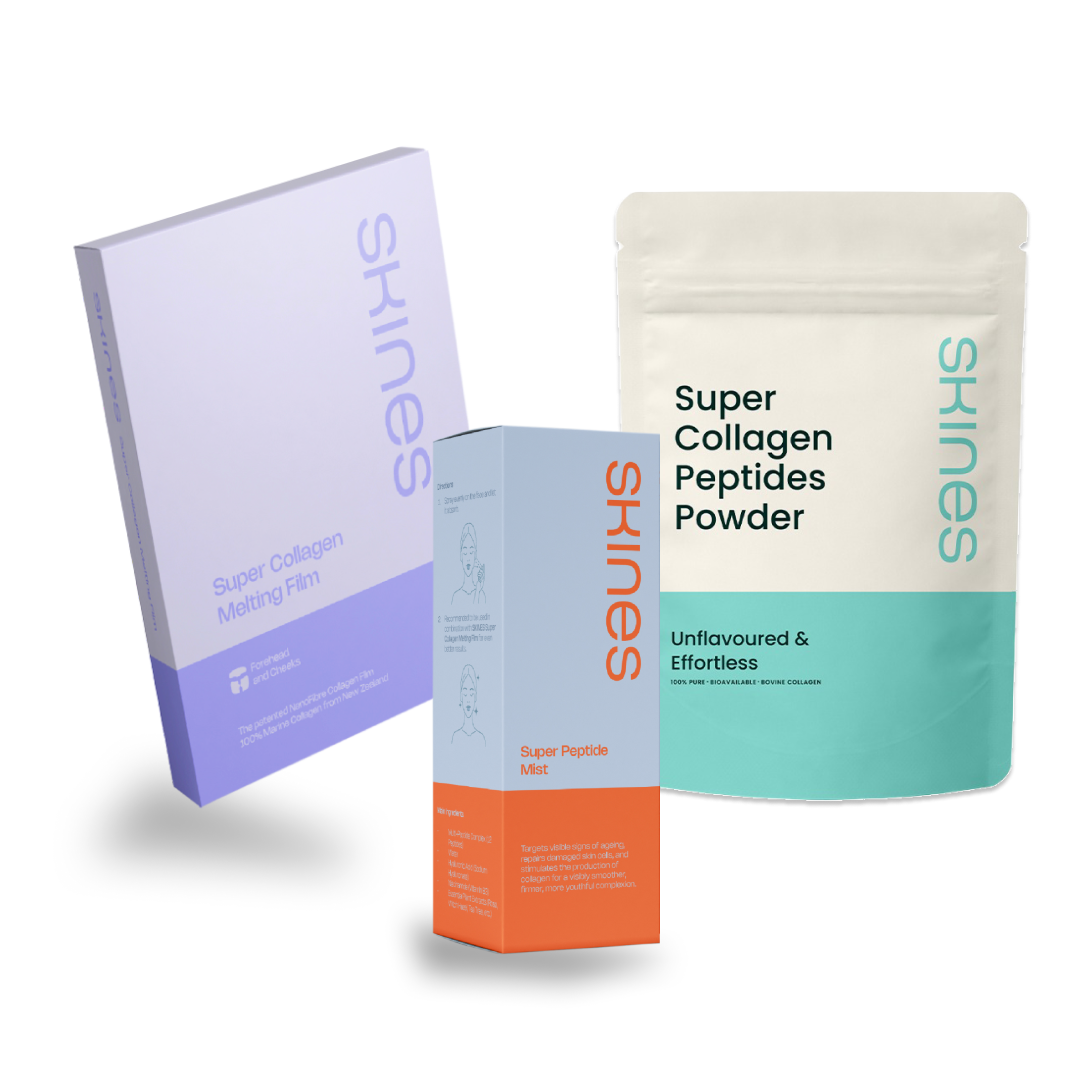

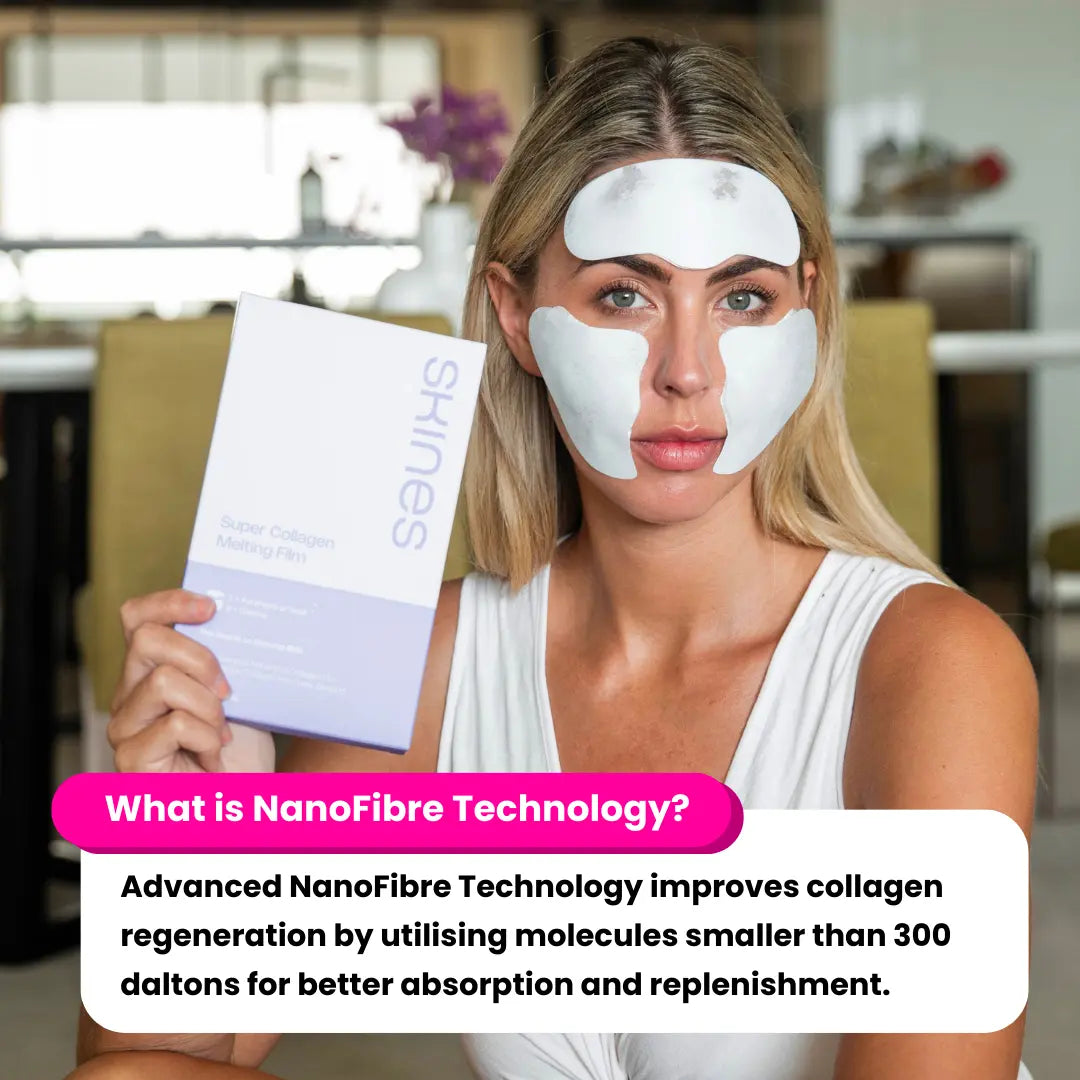
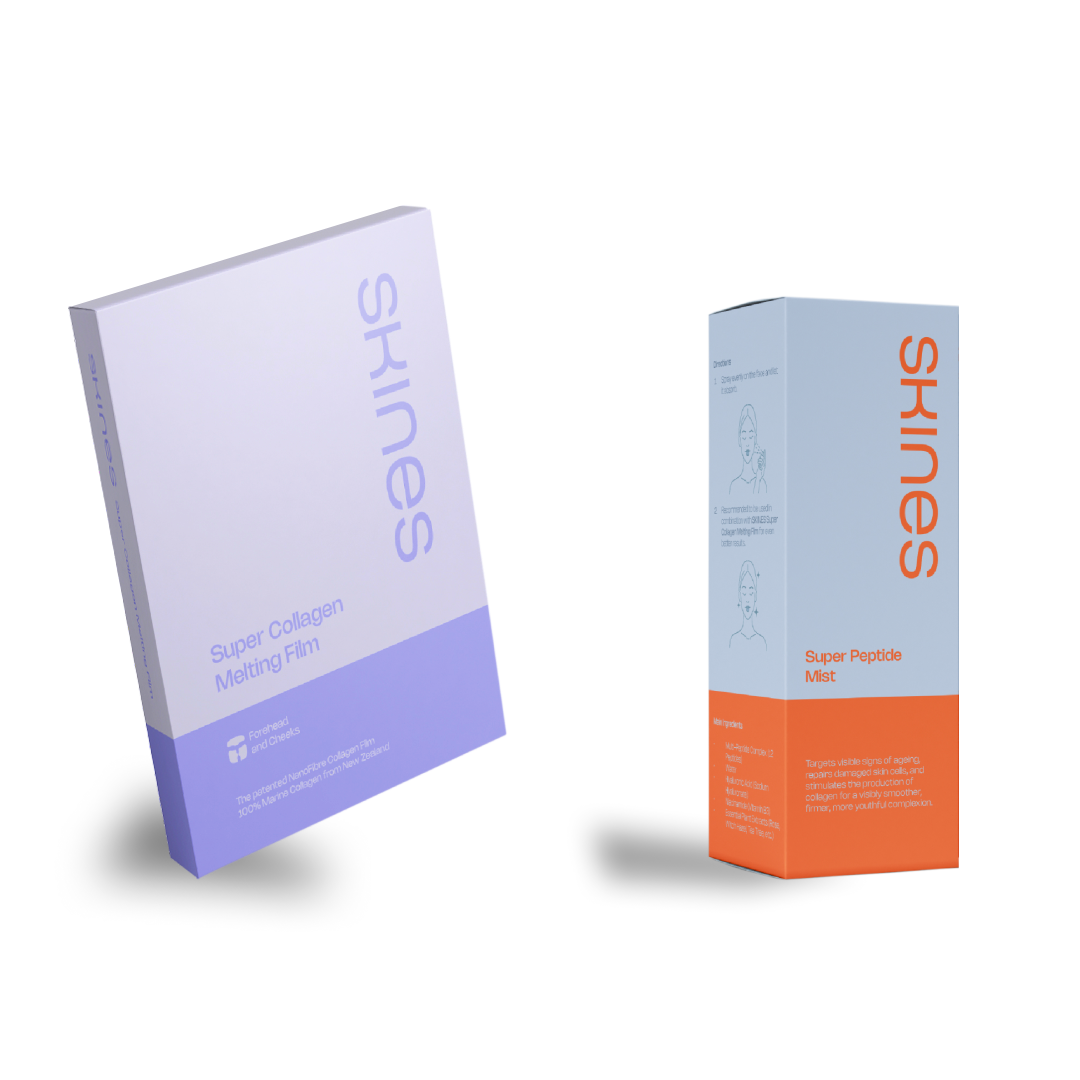
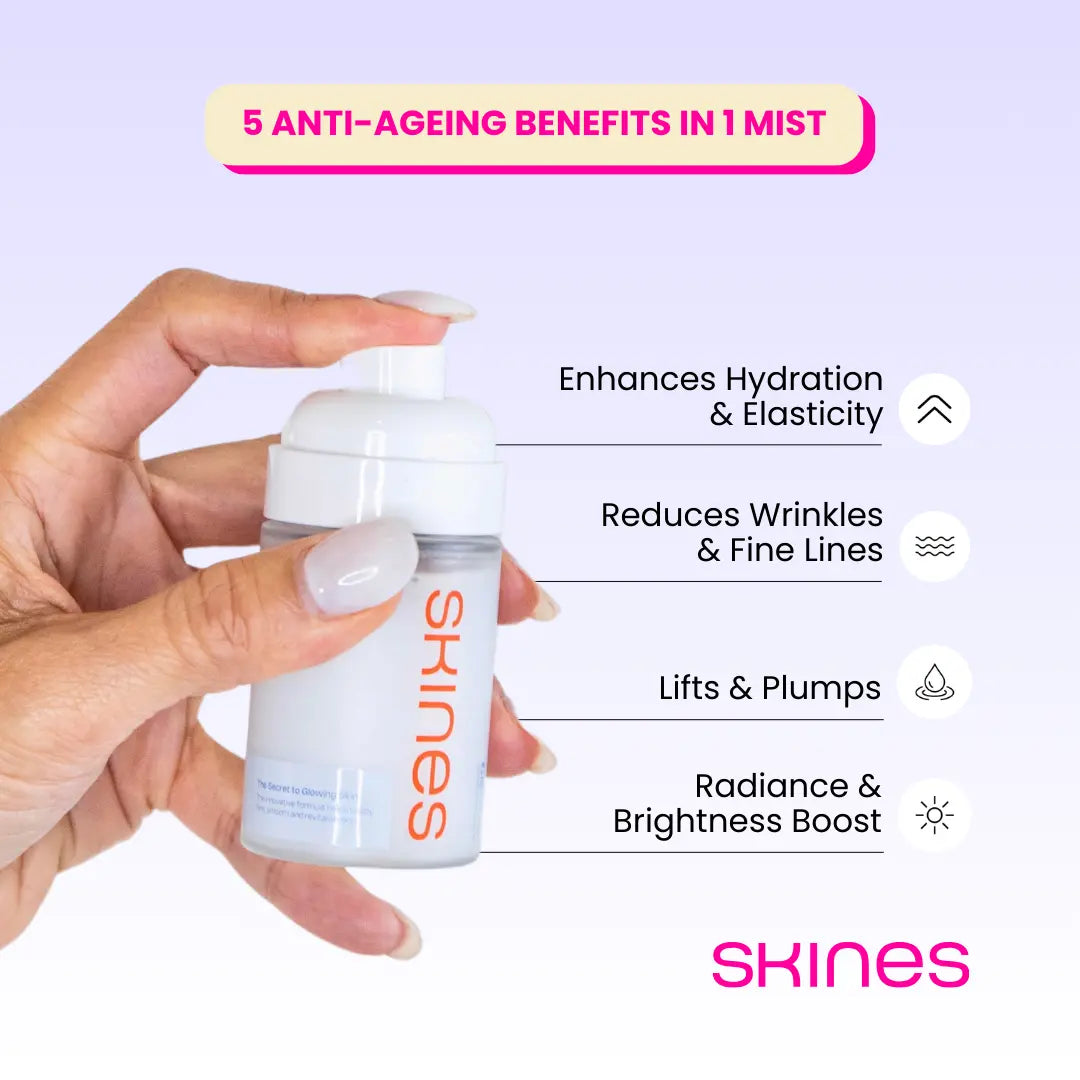

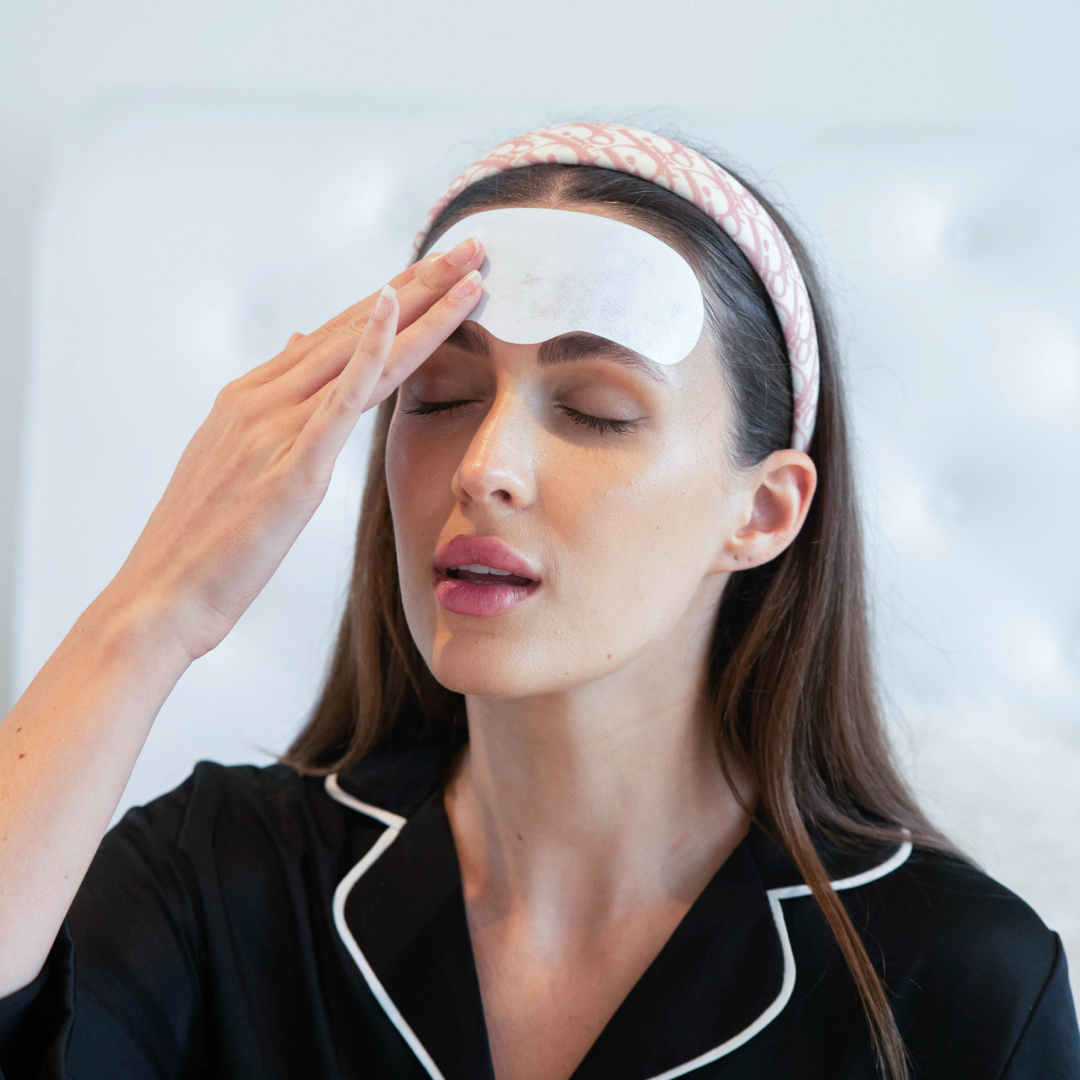
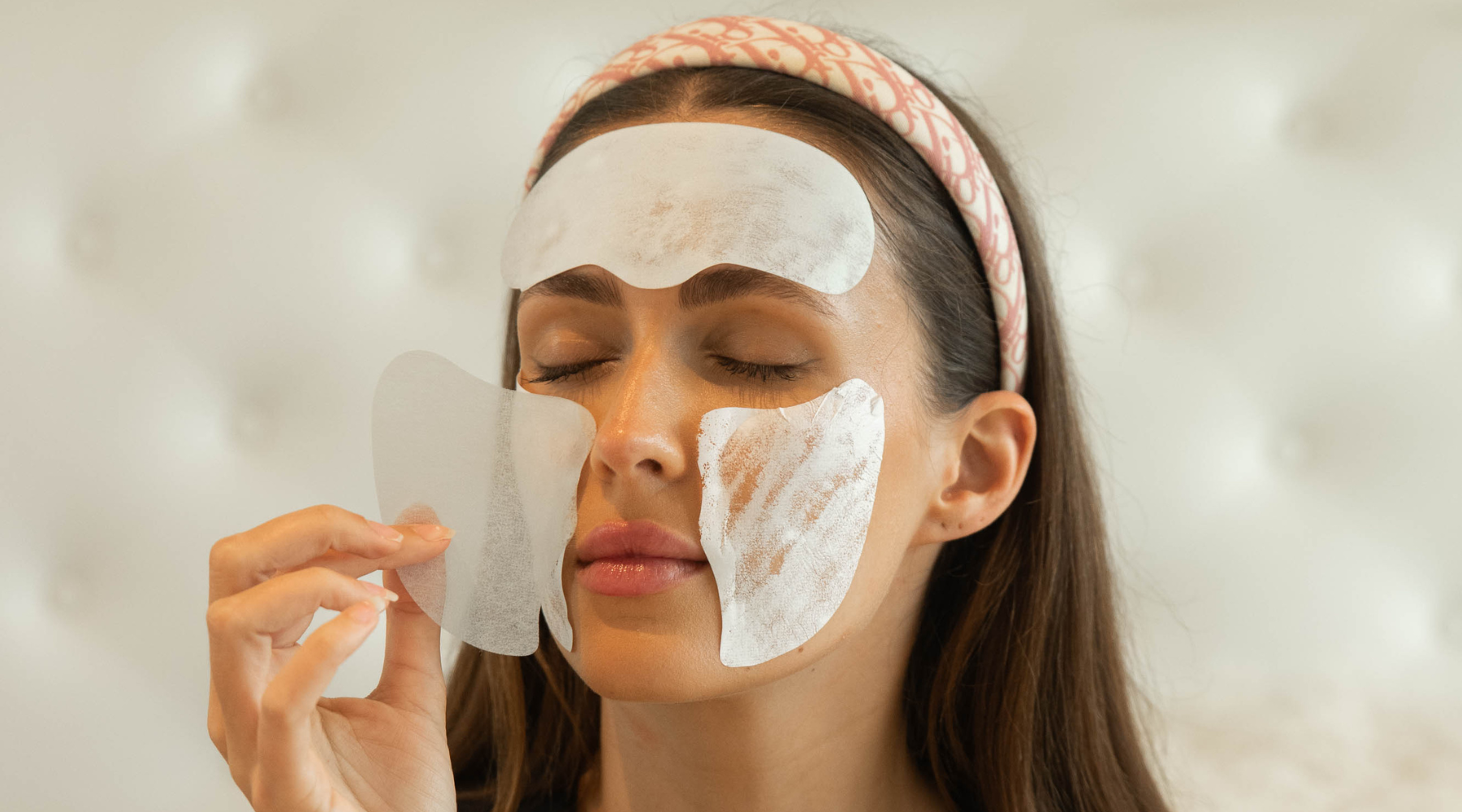
Leave a comment
This site is protected by hCaptcha and the hCaptcha Privacy Policy and Terms of Service apply.